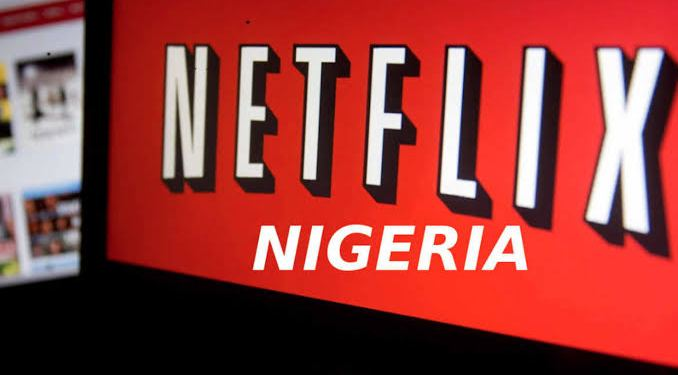AI Revolution: UNILAG to Host Africa's Inaugural OpenAI Academy!
Recent developments in the technology and artificial intelligence landscape highlight significant strides across Africa, particularly in fostering AI education and accessibility, alongside efforts to enhance user trust on social media platforms. These initiatives underscore a dynamic period of innovation and adaptation, aiming to empower users and expand the continent's role in the global tech arena.
A landmark initiative is the establishment of Africa's first OpenAI Academy at the University of Lagos (UNILAG), a collaboration between the esteemed Nigerian institution and OpenAI, a leading force in artificial intelligence. This academy is poised to deliver free AI learning resources and vital capacity-building opportunities, targeting a broad spectrum of individuals including students, researchers, and professionals throughout the African continent. The core vision behind this partnership is to ensure Africa is not merely a consumer but an active participant in the creation and evolution of AI technologies. UNILAG, recognized as a hub for innovation, serves as an ideal launchpad for such an endeavor. The potential impacts are far-reaching: democratizing access to AI education across Africa, enabling Nigeria and the broader continent to exert greater influence in shaping AI's future, and stimulating the emergence of locally relevant AI innovations. However, the success of this academy hinges on its ability to transcend urban centers, reaching diverse communities across Nigeria and Africa, and translating educational opportunities into tangible, real-world AI solutions.
Concurrently, X, the social media platform formerly known as Twitter, is taking steps to rebuild user trust amidst growing concerns about misinformation. The platform is rolling out a new feature designed to provide more comprehensive information on user profiles. This enhancement will allow users to view details such as the date an account joined the platform, its geographical location (country or region), and whether the user has recently altered their handle or display name. This move comes as a direct response to a surge in fake accounts and impersonations, which became more prevalent after X discontinued its traditional verification system and introduced a purchasable blue checkmark. By offering greater context, X aims to equip users with the tools to discern genuine accounts, especially when engaging with trending topics or breaking news, and to identify profiles that may be disseminating false information. While testing of this feature will commence with X employees, its ultimate efficacy in comprehensively addressing the platform’s broader trust issues remains to be seen.
Further demonstrating OpenAI's commitment to global accessibility, the company has introduced rand-based pricing for ChatGPT in South Africa, alongside a new, more affordable tier named ChatGPT Go. This strategic pricing adjustment is intended to make advanced AI services more accessible and budget-friendly for South African users by denominating costs in the local currency and offering varied subscription options. According to MyBroadband, the ChatGPT Plus plan will be priced at R399 per month, which is approximately 15% higher than a direct dollar conversion, inclusive of VAT. The Pro tier will be available for R3,999.99 in South Africa, also slightly exceeding the converted dollar rate. The new ChatGPT Go tier, priced at R149 per month, offers a more economical entry point, though it comes with reduced features compared to the Plus plan, omitting certain capabilities such as full deep research tools and Sora video generation. Nevertheless, Go users will benefit from perks like a 10x increase in message limits with GPT-5, expanded image upload capacities, and enhanced memory. While these local pricing and tier options aim to boost affordability, questions persist regarding the perceived value of Go’s limitations relative to its cost, and the rationale behind the approximate 15% premium for the Plus and Pro plans compared to their dollar-converted equivalents.
These concurrent developments – the establishment of an AI academy in Africa, X's trust-building initiatives, and localized AI pricing – collectively reflect the dynamic evolution of the digital landscape. They highlight ongoing efforts to democratize access to advanced technologies, foster local innovation, and enhance user experience and trust within increasingly interconnected global and regional digital ecosystems.
You may also like...
The 1896 Adwa War: How Ethiopia Defied Colonialism

Ethiopia with the exception of Liberia which was used as a settler place for freed slaves remains the only African Count...
Why We Need Sleep: Inside the Brain’s Night Shift

Even when you’re asleep, your brain is quietly up to something, sorting, cleaning, and working behind the scenes.
When Nollywood Meets Netflix: The Creative Tug Between Local Storytelling and Global Algorithms

Nollywood’s partnership with Netflix is rewriting the script for African cinema, offering global reach but raising quest...
Mozambique's LNG Megaproject: A Promise or Peril?

TotalEnergies is leading a consortium in Mozambique as it promises potential restructuring of the nation's energy se...
Aliko Dangote, Africa’s Wealth King: First African-Born Billionaire to Cross $30B

Aliko Dangote, the richest Black man in the world, has reached a new milestone, with a net worth of $30.3 billion, accor...
WAEC Conducts Trial Essay Test Ahead of Full Computer-Based WASSCE in 2026

The trial Computer-Based Test (CBT) for the WAEC essay was held on Thursday, October 23, 2025. The exercise was conducte...
Can Long- Distance Love really work?

Can love really survive when touch becomes a memory and connection lives behind a screen? For many, distance isn’t the ...
Nigeria’s Rental Crisis: House of Representatives Moves to Cap Rent Hikes at 20%

Nigeria's rental market has been under intense pressure, and now lawmakers are stepping in. The House of Rep. has called...



